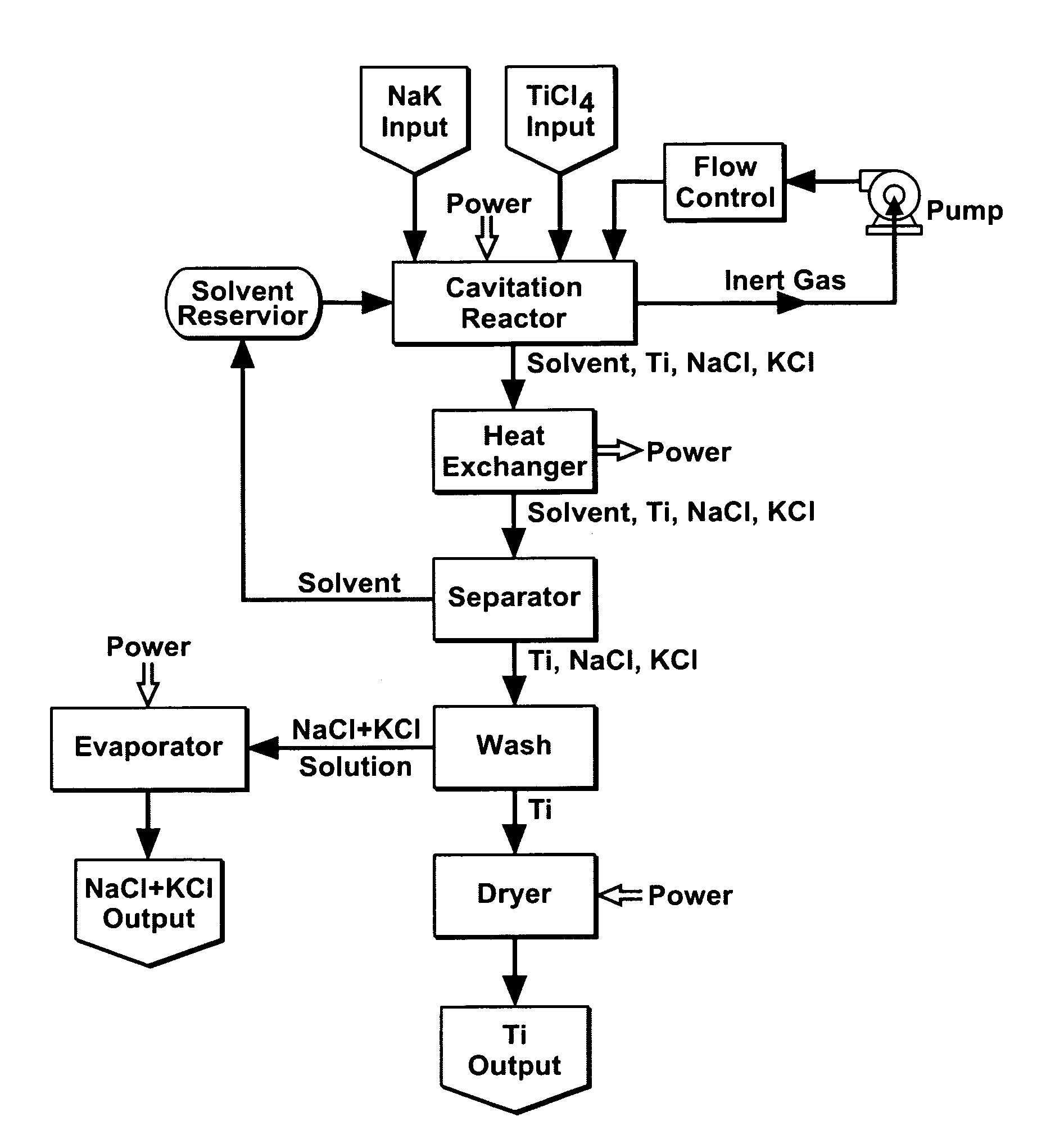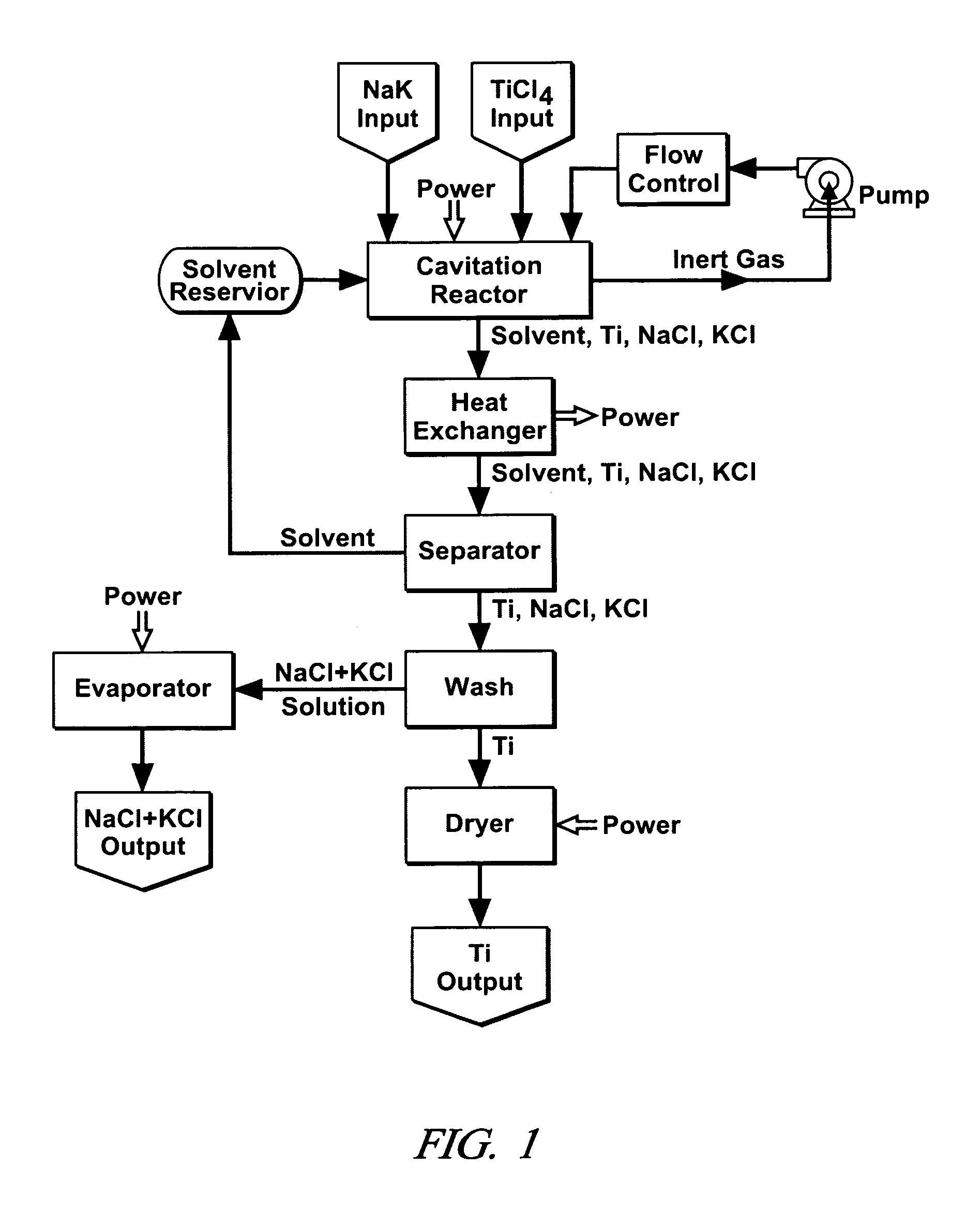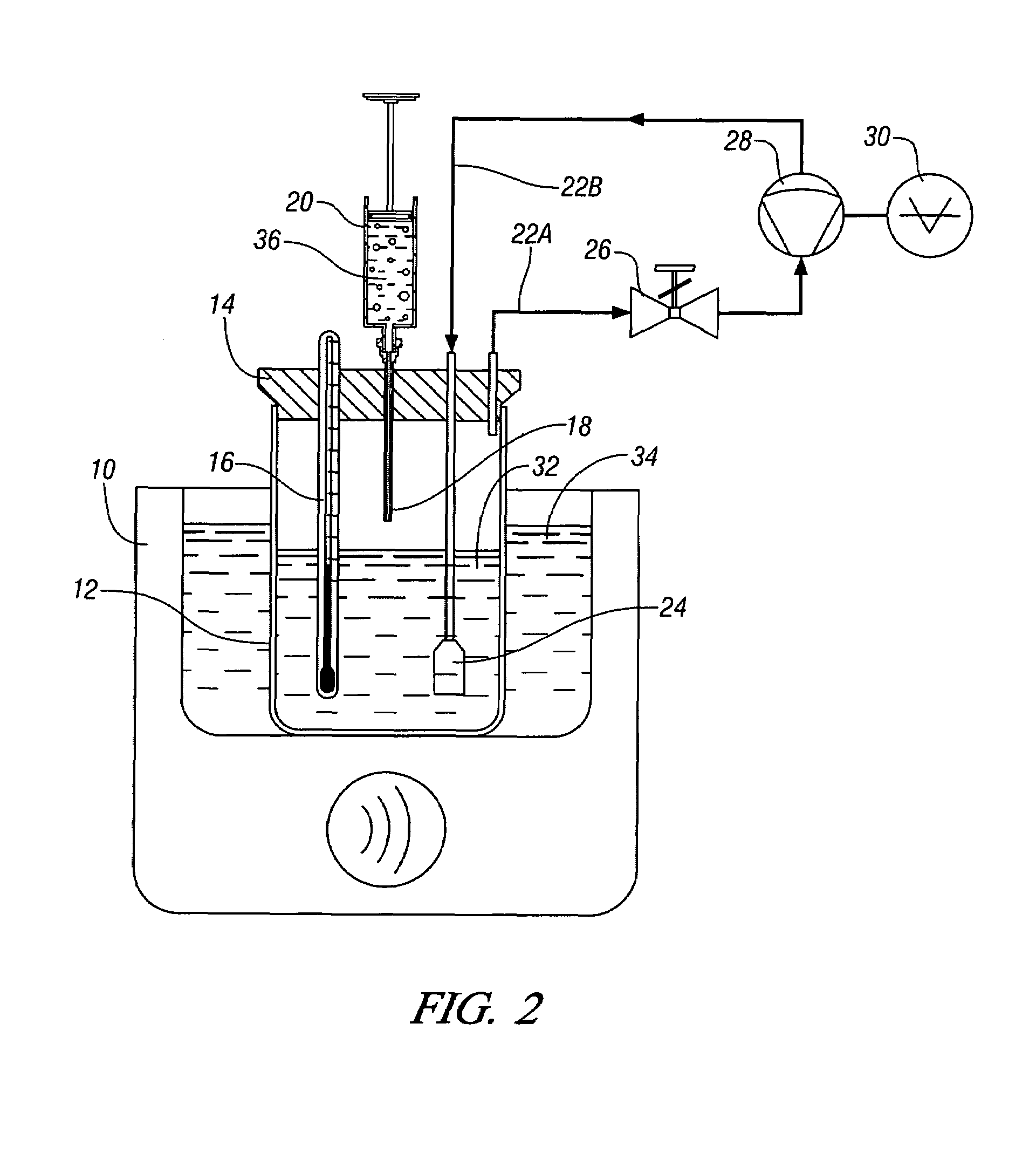Cavitation process for products from precursor halides
a precursor halide and cavitation process technology, applied in the direction of magnesium halides, mechanical vibration separation, separation processes, etc., can solve the problems of high energy consumption of titanium materials, limited use of titanium alloys in automotive vehicles, and low production cost of materials that are currently relatively expensive to produce. , to achieve the effect of low energy consumption
- Summary
- Abstract
- Description
- Claims
- Application Information
AI Technical Summary
Benefits of technology
Problems solved by technology
Method used
Image
Examples
Embodiment Construction
[0017]This invention utilizes sonochemistry to promote the reduction of precursor halides to useful products such as metals, metal alloys, compounds, ceramics, mixtures, and metal matrix ceramics composites. In the practice of sonochemistry, liquids are subjected to high intensity sound or ultrasound (sonic frequencies above twenty kilohertz, above the range of human hearing). The liquid is contained in a suitable vessel that is actuated by one or more ultrasonic transducers or the like. Each transducer converts alternating current energy above twenty kilohertz to mechanical vibrations of about the same frequency. The transducer usually utilizes a magnetostrictive or piezoelectric material to convert alternating current to mechanical vibrations.
[0018]When ultrasonic vibrations of suitable intensity are applied, the energy is transmitted through the walls of the vessel to the liquid. The ultrasonic energy causes the repeated formation, growth, and collapse of tiny cavitation bubbles ...
PUM
| Property | Measurement | Unit |
|---|---|---|
| temperature | aaaaa | aaaaa |
| temperatures | aaaaa | aaaaa |
| frequency | aaaaa | aaaaa |
Abstract
Description
Claims
Application Information
 Login to View More
Login to View More - R&D
- Intellectual Property
- Life Sciences
- Materials
- Tech Scout
- Unparalleled Data Quality
- Higher Quality Content
- 60% Fewer Hallucinations
Browse by: Latest US Patents, China's latest patents, Technical Efficacy Thesaurus, Application Domain, Technology Topic, Popular Technical Reports.
© 2025 PatSnap. All rights reserved.Legal|Privacy policy|Modern Slavery Act Transparency Statement|Sitemap|About US| Contact US: help@patsnap.com



